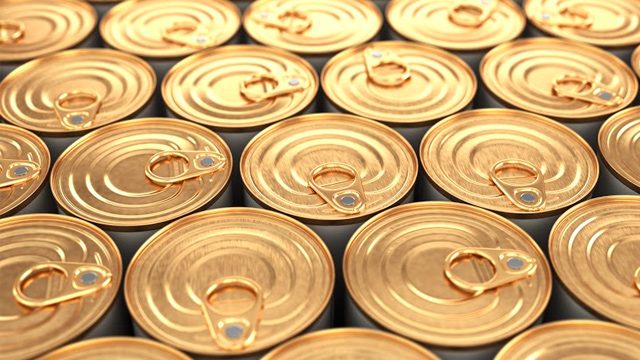SUMMARY
This is AI generated summarization, which may have errors. For context, always refer to the full article.

MANILA, Philippines – Results of a new study confirmed the bigger influence of canned foods on one’s exposure to Bisphenol A (BPA), a hormone-disrupting industrial chemical widely used in the production of polycarbonate plastics and epoxy resins.
BPA is a cause for concern especially for parents “may be because some animal studies report effects in fetuses and newborns exposed to BPA,” the US National Institute of Environmental Health Sciences (NIEHS) said.
According to the Stanford University, BPA is a chemical linked to diabetes, cardiovascular disease and other health effects.
According to the NIEHS, the primary source of exposure to BPA for most people is through their diet.
The study conducted by researchers from Stanford and Johns Hopkins universities and published in Environmental Research, assessed thousands of people from different age groups and with different geographic and socioeconomic backgrounds.
It evaluated both the dietary sources of BPA contamination and BPA levels in the urine of people who recently consumed canned food, a statement from Stanford University read.
Lead author Jennifer Hartle and her co-researchers found that canned food was associated with higher urinary BPA concentrations, and different canned foods have different amounts of BPA contamination.
“The more canned food consumed, the higher the BPA,” the statement read.
But the study also pointed out that specific canned foods are linked to higher levels of BPA, with the “worst offender” being canned soup, followed by canned pasta, and canned vegetables and fruit.
“I could eat 3 cans of peaches, and you could eat one can of cream of mushroom soup and have a greater exposure to BPA,” Hartle from the Stanford Prevention Research Center noted.
Researchers recommended that federal regulators expand testing beyond BPA, and include other chemicals used as BPA replacements in food packaging.
“The [US Food and Drug Administration] no longer allows BPA to be used in baby bottles, sippy cups and liquid infant formula canned linings, and many food and beverage companies are moving away from the use of BPA,” Hartle said.
“However, we do not know if synthetic BPA replacements are safe either.”
Ana Navas-Acien of Johns Hopkins and Columbia universities, and Robert Lawrence of Johns Hopkins University are Hartle’s co-authors for the study “The Consumption of Canned Food and Beverages and Urinary Bisphenol A Concentrations in NHANES 2003-2008.“
A previous study led by Hartle found that children are at risk from school meals that often come from cans and other packaging. – Jee Y. Geronimo / Rappler.com
Add a comment
How does this make you feel?
There are no comments yet. Add your comment to start the conversation.